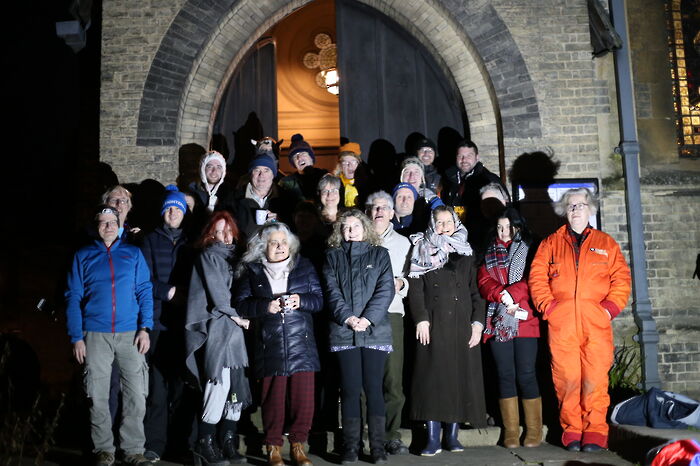Giving money to the homeless should not be discouraged
We have a responsibility to act with empathy towards the homeless in Cambridge, argues Eve Hodgson

Economic advantage permeates and influences any Cambridge experience. My college’s May Ball will set a pair of you back nearly £400, eight schools (six of which are private) send more students per year than nearly three thousand state schools, and events often seen to be integral to your experience, like subject dinners, can inflate a college bill by £35 or more. I find it immensely jarring to walk through Cambridge, see its beautiful colleges which host these events, and see people in desperate need sitting in front of them. The contrast between wealth and penury is rarely starker.
This is not a case of justifiable polarity, excusable by some aphorism about ‘freedom breeding inequality’. The dividing line is far starker here than in most places. It is blatantly unfair that colleges endowed with over a billion pounds, like Trinity, occupy the same space as those who cannot afford food or shelter.
What is worse are the preclusions we often collectively place upon homeless people before they earn the right for us to give money to them. How often have you heard a sniffy comment that somebody homeless would probably spend money you gave them on drugs?
Many Cambridge students will have tried recreational drugs, and alcohol is fundamental to many of our social lives, though this is rarely met with public scrutiny or derision. Who are we, then, to cast judgement on the fact that others might spend their money in this way?
“Empathy is nothing but a strength”
The oldster consensus instructs us to channel money to the homeless through charities. These structures are meant to more systematically aid the homeless than a bit of change here or there can. And, indeed, many homeless people’s lives are made liveable by some charities here in Cambridge. Streetbite’s food and hot drinks round offer comfort and company, along with nutrition and warmth, and Jimmy’s is invaluable in helping people on the streets find emergency or supported accommodation.
But some charities – including those who advise against giving money to individual homeless people – are hugely problematic themselves.
The Salvation Army advises giving to charities and avoiding giving to people on the streets, but have had multiple problems with homophobia, including publicly opposing the repeal of Section 28 on the grounds of the harm it would do to ‘children and the family unit’. Moreover, the Salvation Army’s workers were asked to stop expressing views relating to ‘hot topic issues like LGBTQ Marriage’ only last November. When LGBT+ people comprise nearly a quarter of the youth homeless population in Britain, I’d rather give my money straight to them rather than putting it into a charity who have demonstrated such significant prejudice.
And if I give £10 to a charity, some real good can come out of it, but it takes time. If I see money leave my hand and go into theirs, I know it can do them some good now – a sandwich or a coffee or a contribution to a place to stay.
I’m loath to walk past a homeless person and feel fine giving them nothing when my money would give them a little bit of comfort right there and then. Many people in Cambridge have a huge capacity to help, not being short of disposable income. Going out three or four times a week most weeks in first year set me back about £15 or £20 a time, but by no means put me in financial hardship.
It should be appreciated that not everyone is in the fortunate position to give, and I don’t particularly mind or worry when I see people apologise for having no change. It bothers me much more when people sail past needy individuals with no regard for how that must make them feel. Yes, it can feel uncomfortable to regard Cambridge’s homeless with nothing to give them, but I guarantee it is a hundred times more uncomfortable to be in that position of need and to not even have your humanity acknowledged.
Empathy is nothing but a strength. We all know how it feels to be ignored, and can imagine how frustrating it must be to need something and to be refused it. If you can, I think we all have an urgent responsibility to give generously and unconditionally to the homeless. If I can spend nearly £200 on a May Ball, I should be able drop someone £10 without a second thought on what they’ll use it for.
 Comment / Cambridge’s tourism risks commodifying students18 April 2025
Comment / Cambridge’s tourism risks commodifying students18 April 2025 News / Cambridge student numbers fall amid nationwide decline14 April 2025
News / Cambridge student numbers fall amid nationwide decline14 April 2025 News / Greenwich House occupiers miss deadline to respond to University legal action15 April 2025
News / Greenwich House occupiers miss deadline to respond to University legal action15 April 2025 Comment / The Cambridge workload prioritises quantity over quality 16 April 2025
Comment / The Cambridge workload prioritises quantity over quality 16 April 2025 News / Varsity ChatGPT survey17 April 2025
News / Varsity ChatGPT survey17 April 2025





